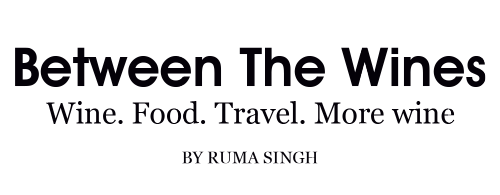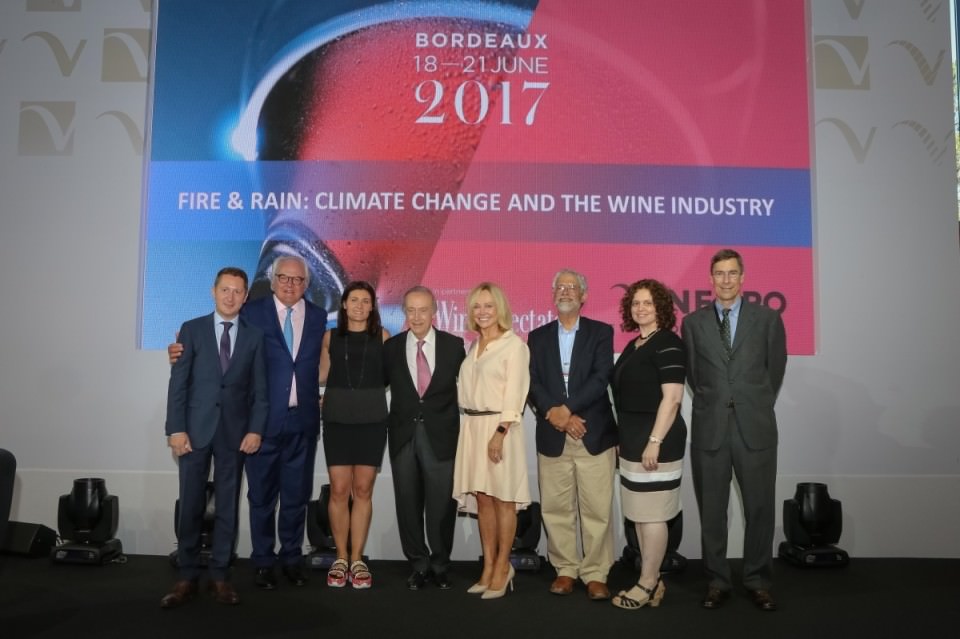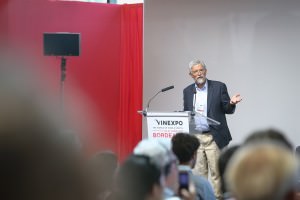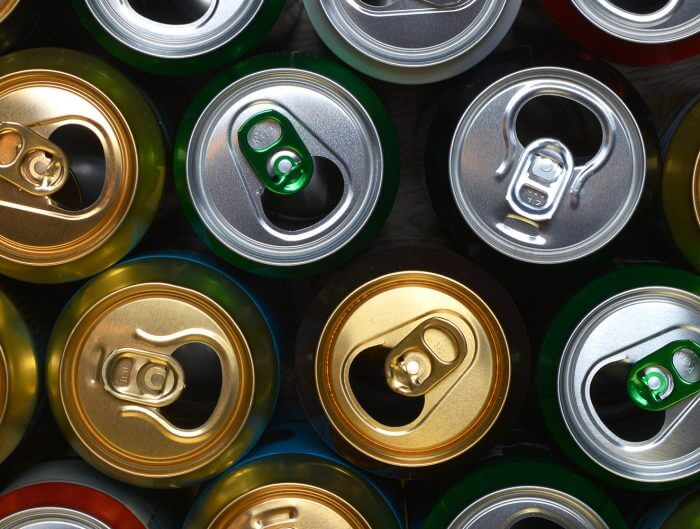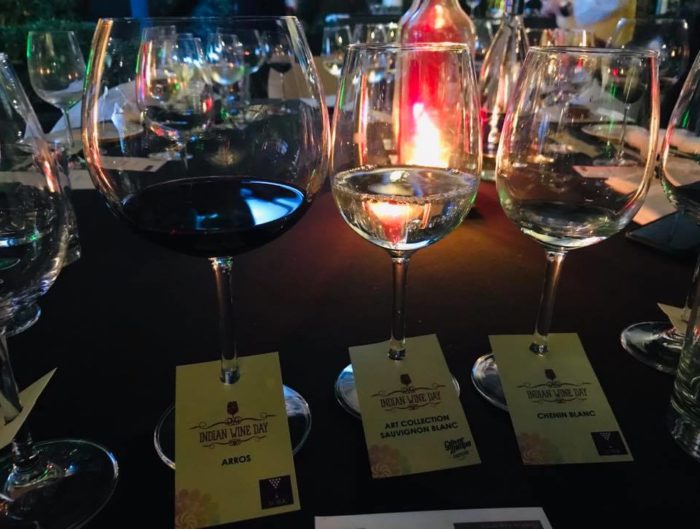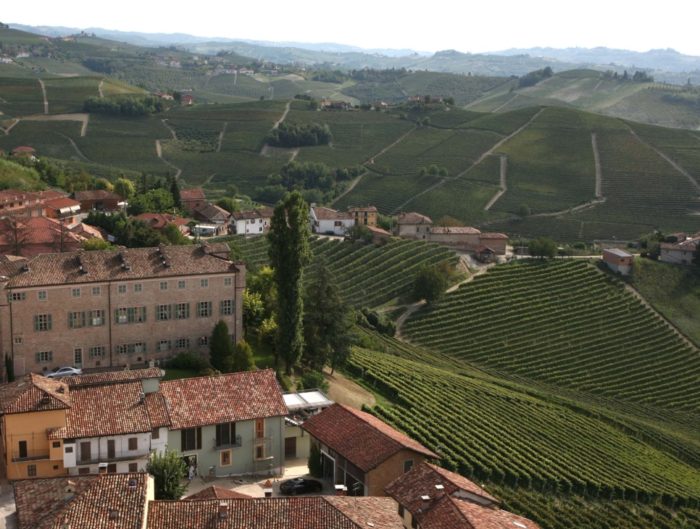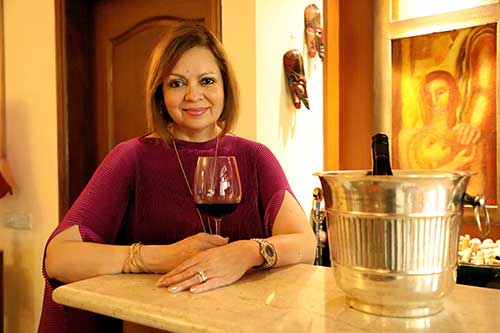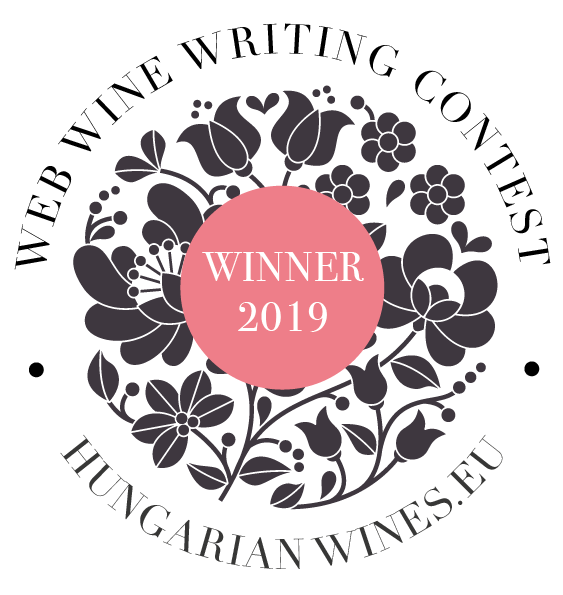‘Vines are like thermometers’
Vinexpo 2017 in Bordeaux opened with a dramatically headlined panel discussion on Day 1 entitled Fire and Rain on the hot-button issue of climate change. Spain’s Miguel A Torres president of Bodegas Torres, Harvard physicist, climate change expert and advisor to Barack Obama, Professor John P. Holdren, Italy’s Gaia Gaja, co-owner of Gaja Winery, and Kathryn Hall, former U.S. Ambassador and proprietor of Napa Valley’s Hall Vineyards weighed in on the discussion moderated by Wine Spectator’s senior editor Dana Nigro.
“Small changes can cause great havoc,” said Christophe Navarre, president of Vinexpo, introducing the session. Undoubtedly at the back of everyone’s mind was U.S. President Donald Trump’s announcement about withdrawing from the Paris Accord.
Already of concern to the world at large, the wine industry has been experiencing the backlash from changes in temperature across wine producing regions around the globe. “We have seen climate change and its fallout for 200 years now,” said Holdren, “We’ve known for decades that it must be addressed; human acts are causing this.” The changes will get worse, he added: the frequency and range of heat waves are increasing at a scary pace; productivity is affected; there is increase in pollutants, the number and intensity of storms, floods and droughts: catastrophic impact everywhere. “Higher than average temperatures, torrential downpours which damage crops and cause devastation, a great increase in pests and pathogens, more carbon dioxide released through deforestation and burning of fossil fuels. And geographical boundaries will be altered.”
If this isn’t enough, wine lovers must brace for major changes in the wines they drink: “Warmer than normal temperatures will create overripe fruit with low acidity, high sugar, hence high alcohol and cooked flavours. The heat wave of 2003 which resulted in deaths in the south of France will become the new normal – and even be regarded as cool weather by 2040-60.”
Despite the US government’s decision to withdraw from the Paris Agreement for “bad reasons”, Holdren says over 75% Americans favoured remaining, and what’s heartening is that individual corporation and individuals are going all out to do their bit to help make a positive impact.
Torres, who was the architect of the Barcelona Declaration of 2011 which sets out ten criteria wineries must adhere to in order to produce wine in a genuinely sustainable fashion, said he had his ‘aha’ moment 10 years ago watching Al Gore’s documentary An Inconvenient Truth. “If the whole world is affected, what will happen to our vines which are very sensitive to climate change?” he wondered. “We must adapt ourselves, make changes – for instance, do you know eating meat is harmful to the environment? Try eating lentils, rather than beef…I do!” Not sure if the world will listen to this bit of advice, but it’s food for thought.
Within his region, Torres has been taking steps to plant more indigenous grape varieties (he had also mentioned this in an earlier interview with me.) “They are hardier. We have replaced fossil fuels with biomass. I use an electric car – not a Tesla – that’s too expensive for a winemaker! (Laughs) But we must approach the problem the right way – realize this is very serious. We have started by reducing 10% of our carbon footprint starting from 2007.” Bodegas Torres has a declared target of reducing emissions by 30% by 2020.
Gaia Gaja agreed. “Vines are like thermometers, they register every little change around them,” she said. The change is evident all around: “Monoculture is prevalent, biodiversity is being lost, there’s an excess of green harvesting… we will pay a high price for all this. We will end up with over- the-top wines, which will lose their drinkability.”
The biggest problem is that climate change hasn’t yet been perceived as a problem in many wine regions. “If you want good wines not manipulated ones, you must play the game right in the vineyards not the cellars, to get the right acidity and balance.”
